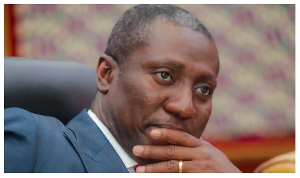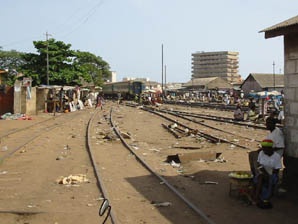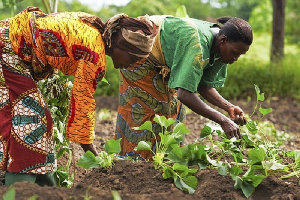A 30-strong delegation of Korean railway executives and engineers will arrive in Ghana this coming weekend at the start of a 12-day visit to conduct a feasibility study on the re-development of the Ghana Eastern Railway.
Led by Jamila Kwen and B.K. Asamoah, the president and CEO respectively of GK Holding Company, the developer of the railway project, the delegation includes high-ranking officials from KORAIL, Moody's affiliate Korea Investors Service Inc, Yooshin Engineering Corporation, and Moon Engineering. Also on the trip will be the Ghanaian Ambassador to Korea, K.A. Sarpong.
The trip begins with a courtesy call on the Korean ambassador to Ghana, Lee San-pal, followed by discussions with the government of Ghana.
The main purpose of the trip will be top level discussions with the Ministry of Habours and Railways, the Ministry of Finance and Economic Planning, the Bank of Ghana, Stanbic Bank, Ghana shippers council, Ghana Port and Harbours Authority and the other end users of the eastern railway line from other countries in the region such as Bukina Faso, Mali and Niger. The regional administrations of Greater Accra, Eastern and Ashanti regions, and local engineers will participate in the discussions on the planning principles related to the railway redevelopment project.
Korean engineers will be conducting field studies along the proposed route from Tema through Accra to Kumasi. The proposed redevelopment will cover a total distance of 250 kilometers and pass through 47 cities. The route which also crosses the Densu and Ayensu rivers, poses a significant challenge for the developers.
"We decided to work with Korean Rail and Korean engineers because their technology is proven to be the best worldwide. We are confident that this trip will achieve a major technological transfer between Ghana and Korea which has already been recognized by the Ghana government during the recent visit of Sophia Horner-Sam, Ghana's deputy minister for Railways to Korea, and also build confidence in our investors," B.K. Asamoah told The Korea Herald.
The original 304km Eastern Railway was built in 1923 by the British purposely for the hauling of minerals and cocoa. It has a narrow gauge with a speed of 40km/h and is now virtually unusable in many locations. The Government of Ghana has launched a far-reaching program of trade and investment promotion designed to make Ghana a gateway into the Western African sub-region. Ghana's railway sector is expected to play an important role in this initiative.
The Ghana Railway Company Limited currently has a very small share of the national transport market, with 4% of freight and 1% of passengers. Over 90% of the freight traffic is bulk minerals - bauxite and manganese - transported from the mines at Awaso and Nsuta to Takoradi port for export. Most of the other traditional freight commodities such as timber, cocoa, petroleum products and cement, as well
Under the new Ghana government policy, project developers and investors will re-develop and modernize railway line into a standard gauge with a maximum speed of 160km/hr.
"From finally signing agreements, we expect the first phase of the redevelopment from November 2006 to be completed by November 2007, the entire project is expected to be completed in 2years," Asamoah said.
The total cost of the redevelopment is expected after the financial feasibility study by Moody's with the bulk of the contract going to Korean companies. Funding for the project is mainly expected to come from the African Development Bank, Korea Exim Bank, Shinhan Bank, Woori Bank, and Stanbic Bank from South Africa.
Click to view details



General News of Wednesday, 30 August 2006
Source: Korea Herald
Korean rail engineers head to Ghana
Opinions
















